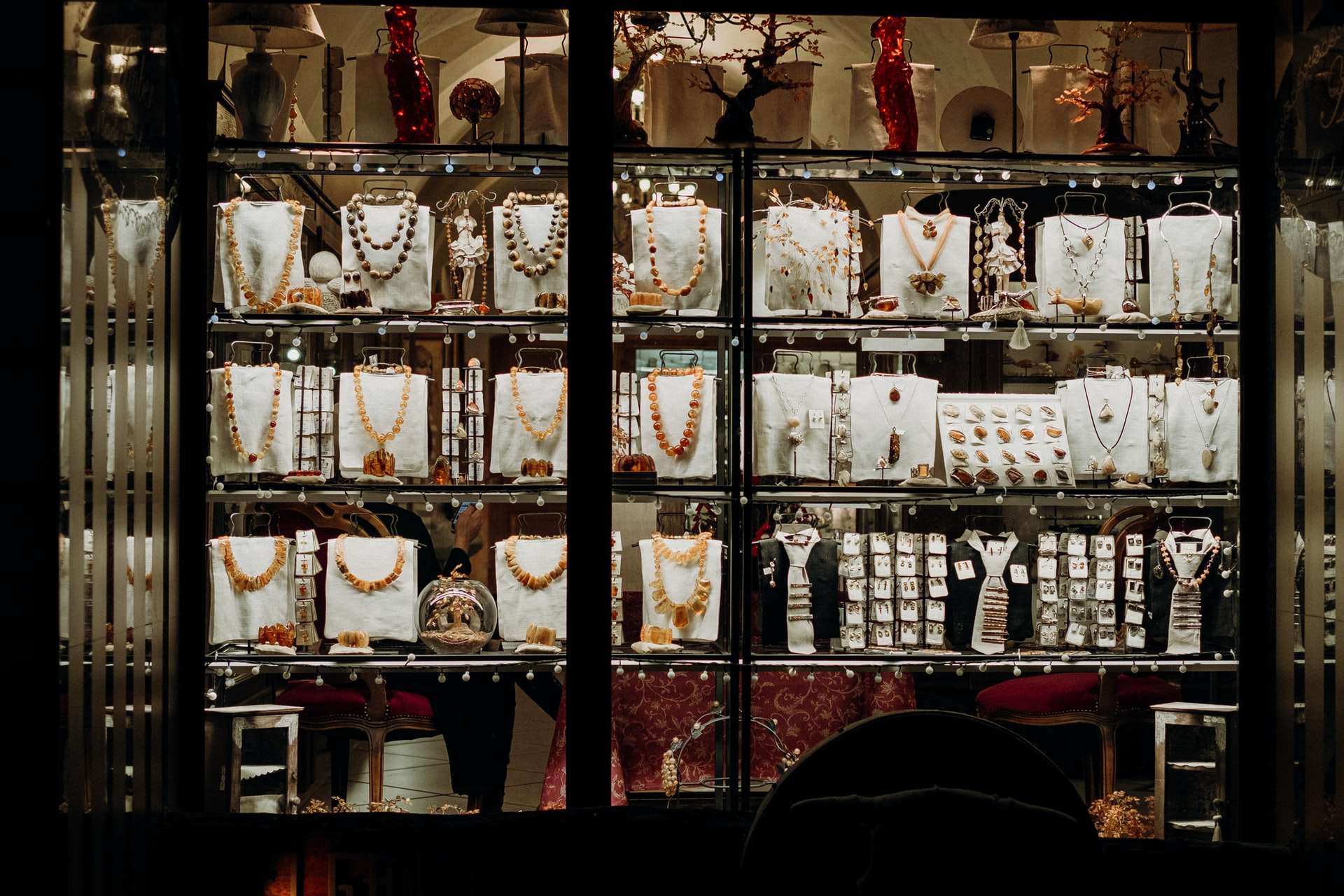Owning or operating a jewelry business can be costly so it is important to have the right insurance such as jewellery shop insurance coverage that covers loss, damage and liability. Insurance is an important asset that needs to be well thought off.
This article will go into detail about the types of insurances needed for jewellers, their costs as well as recommendations on what insurance companies to opt for.
Introduction to Jewelry Business Insurance
Large scale and small scale jewelry businesses operate in a unique market and thus face excessive risk needing unique insurance policies. Insurance for jewelry businesses includes general liability insurance and property insurance, which are applicable to every type of business.
Most Jewelry business insurance policies help cover the risk of being injured, damage to property and loss of items which is common in the jewelry business.
Jewellers block insurance is catered towards jewelers in the jewelry market and helps cover inventory assets not normally covered by regular insurance policies such as stock that is “out for display”.
Insurance for Small Jewellery Business
Small jewelry business owners have a small amount of resources available for them to operate, hence, insurance policies have to be selected that allow for maximum benefits and value for the money. Here are certain types of small jewelry business insurances that are applicable for small jewelry business owners:
- General Liability: This assists with the coverage of image rights or slander as well as copyright of other startups along with general complaints from customers, business owners and employees.
- Commercial Property Insurance: This policy insures against loss to owned or leased premises and its contents.
- Workers’ Compensation: This kind of insurance coverage is mandatory to those who have employees as it takes care of medical bills and wages lost by the workers injured while at their places of work.
- Business Owner’s Policy: A BOP combines general liability, property insurance and business interruption at a lower rate compared to purchasing the remodeling and the insurance separately.
Jewelers Business Insurance
Jewelry designers are exposed to certain risks that others are not – the reason being the value of their inventory and the threat of theft or loss. To solve for this issue, jewelers business insurance should have:
- Jewelry Block Insurance: Provides coverage for business property such as inventories and equipment that have been stolen, lost, or suffered damage — both on and off the premises.
- Professional Liability Insurance: This type of insurance is also called errors and omissions insurance and it protects against any claims of professional negligence or mistakes done in appraisals or repairs.
Business Insurance for Jewellers
For jewellers in particular, making sure they have the most adequate coverage of all the risks is paramount for ensuring their business will continue running. Some important points are a few of the following:
- Customer Liability Insurance: This protects the jeweller against damages or injuries that are caused by the products sold.
- Business Public Liability Insurance: Offers protection against claims made by customers or other visitors who have sustained injuries or damage to their property while on the business’s premises.
Jeweler Liability Insurance
Jeweller liability insurance ensures that you are protected against any legal claims that may arise from accidents or damages. This would include things like:
- General Liability: This covers bodily injuries, property damage, and advertising injuries.
- Professional Liability: This covers the mistakes done by jewelers when performing their professional duties such as appraisals.
Jewelry Store Insurance Cost
The cost of jewelry store insurance varies based on factors such as the type of coverage, business size, and location. Here is a breakdown of typical costs:
| Type of Insurance |
Average Cost per Month |
Average Cost per Year |
| General Liability |
$69.66 |
$835.92 |
| Jewelers Block |
$84 |
$1,008 |
| Professional Liability |
$62 |
$744 |
Jewelry Store Insurance Companies
There are three main aspects of an insurance firm for jewelry shops that need to be kept in mind. They are as follows:
- Specialization in Jewelry Insurance: Jewelers Mutual and BriteCo are prime examples as they only sell policies for Jewelry stores.
- Comprehensive Coverage Options: It is crucial to consider companies that cover theft, damage, liability, and other extreme measures.
- Reputation and Trustworthiness: An assessment is a great way to ascertain that a company is genuine by reading the reviews of other jewelers.
Comparison of Top Jewelry Insurance Companies
| Company |
Specialization |
Coverage Options |
Reputation |
| Jewelers Mutual |
Specialized in jewelry insurance |
Comprehensive coverage for jewelers |
Excellent |
| Chubb |
High-end insurance solutions |
Theft, damage, liability |
Strong |
| BriteCo |
Fine jewelry and watches |
Zero-deductible policies |
Innovative |
Best Jewelers Insurance Companies
Here are some of the top insurance companies for jewelers: including their, pros, cons, and ratings:
Jewelers Mutual Insurance Company
If you are considering getting any type of insurance in the jewelry business, Jewelers Mutual is definitely the most popular option.
They have been operating for more than a century in the industry and have established a reputation for themselves. The good news is that claims are resolved as quickly as possible and readers have access to many educational resources.
Pros:
- Worldwide, multi-faceted protection from loss, theft, or vandalism.
- There are policies that offer replacements but do not require payment of a deductible.
- The company has been rated highly for its customer service and financial strength (AM Best A+ rated).
Cons:
- Certain services may be a more expensive option than some other competitors.
- Options for monthly payments are not offered.
Rating: 7/10
Chubb Insurance
Chubb deals in providing customized jewelry business insurance as relates to the jewelry business. Due to its high quality nature, this type entirely specializes in item insurance including jewelry which is very expensive. With regards to coverage, they provides advice around the globe.
Pros:
- Covers a range of types including Loss whereby most types have no deductibles.
- Scoops up new purchases automatically and items that are consigned or on loan.
- Pull expert advice and help to ensure jewelry does not leave their possession and get stolen.
Cons:
- This particular option is expensive as compared to others for most of the time.
Rating:7/10
BriteCo Jewelry Insurance
BriteCo is a company that provides insurance coverage for luxurious pieces of jewelry and watches at low premiums with no deductibles. For a more rapid and full-value coverage of claims, the company collaborates with the jewelers directly.
Pros:
- There are no out of pocket costs or deductibles.
- Online claims are smooth and quick to process.
- The company provides maintenance repairs with no cost to gemstone and diamond jewelry.
- The company is insured by an A+ rated AM Best insurer.
Cons:
- The quotations may take longer to be processed.
- Compared to others in the industry they are new and still growing.
Rating: 6/10








